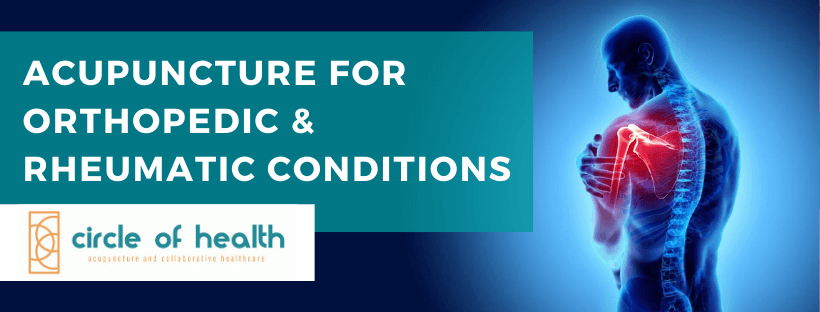
What Is Acupuncture?
Acupuncture is a medical treatment involving the needling of specific points on the body surface to treat disease and to decrease pain. Acupuncture needles are very fine, solid, metallic needles. This ancient form of healing predates recorded history and is widely practiced throughout the world. The roots of modern-day acupuncture stem from ancient Chinese scholars who developed a system of meridians for diagnosis and treatment points. This discipline is designed to rebalance the body’s “qi” (life energy or vital force, sometimes spelled “chi,” “ch’i” or “ki”) after disease or injury.
How Does Acupuncture Work?
There are many theories of how acupuncture works. Classical theories are based on energy channels (meridians) that run throughout the body in specific paths. These pathways are named after organs, but should not be confused with the organ itself. For example, in acupuncture, the word “Kidney” refers to the bones, marrow and joints, as well as to a person’s will and motivation. These pathways, or networks, interact with the internal and external environments and allow life force energy (the qi) to move throughout the body. Pathologies (diseases and medical conditions) present themselves as disturbances within these channels and thereby blocking the normal flow of qi. In acupuncture, special needles are used to stimulate the circulation and restore the natural energetics/flow of qi.
Modern theories of acupuncture claim that the needles affect the nervous system, the circulatory system, the lymphatic system, and the electromagnetic quality of the interstitial fluid at the level of the fascia. This growing body of modern theories of acupuncture indicates that the needle stimulation increases the natural release of endorphins within the body, which mitigates pain and promotes overall health.
What Is Acupuncture Used For?
Acupuncture can treat almost all organ systems in the body. However, in the United States, it is most widely used for musculoskeletal conditions, such as lower back pain and osteoarthritis. It may also be helpful in forms of inflammatory arthritis, such as rheumatoid arthritis, but should be used in conjunction with disease-modifying agents recommended by a rheumatologist.
Soft tissue wounds, muscle spasms, sprains and strains are among the acute musculoskeletal conditions that are most frequently and successfully addressed using acupuncture. Acupuncture is also appropriate to treat chronic musculoskeletal pain as part of a multimodal approach, such as repetitive strain disorders, myofascial pains, arthralgias (joint achiness), degenerative disc diseases and postoperative surgical pain. It is used as an adjuvant for traditional western medicines.
What Does an Acupuncture Treatment Entail?
The acupuncture treatment itself consists of inserting fine needles into the body. The location of the needles depends on the disease pathology and is ultimately designed to influence the flow of qi throughout the body. The needles can be inserted directly, at the point of the injury or pathology, or they can be inserted at more distant points along the channels. There are also microsystems that exist in various parts of the body, such as in the ear or the hand, that have maps of the whole body contained in that small area. Needles can be placed in the spot that corresponds to the organ system affected, or in other specific points (for example,the Shen Men and Point Zero) which have global effects on the body that can help with, among other things, increasing overall endorphin levels.
How Can Acupuncture Help Me With My Orthopedic Surgery?
Acupuncture can be helpful before, during and after surgery for a number of reasons. Before surgery, it can increase your endorphin levels which can alleviate anticipated surgical pain, decrease anxiety, and enhance overall health. Because surgery is traumatic to the body, maximizing a person’s emotional and physical well-being is advantageous for a good post-surgical outcome. Additionally, acupuncture can also help with many other side effects of surgery, including postoperative nausea/vomiting, constipation, urinary retention, and headache.
What Are the Risks Associated With Acupuncture?
In the hands of those trained appropriately in the discipline of acupuncture, it is incredibly safe. The needles used are filiform and typically short, and therefore it is difficult cause any permanent problems. However, anytime there is penetration of a foreign object into the body there is a risk of infection, bleeding, needle retention, allergic reaction (especially to nickel, a metal used in most acupuncture needles), lightheadedness (needle shock) or organ injury. Some patients also report feeling fatigued, agitated, or tearful after their treatment.
Article Author: Stephanie Cheng, MD
Article Source: https://www.hss.edu/conditions_acupuncture-orthopedic-rheumatic-conditions.asp
Learn More About Acupuncture
Visit: https://circleofhealthlongmont.com/therapy/acupuncture.php
Schedule Your Acupuncture Appointment Online: https://circleofhealthlongmont.as.me

Garth Reynolds, MSTCM, L.Ac.
Licensed Acupuncturist and Clinical Herbalist | Schedule Your Appointment
Martial Arts Instructors with Bagua Internal Arts | Local & Online Classes Weekly
#Acupuncture #AcupunctureBenefits #AcupunctureNearMe #AcupunctureWorks #OrthopedicAcupuncture #OrthopedicTreatment

